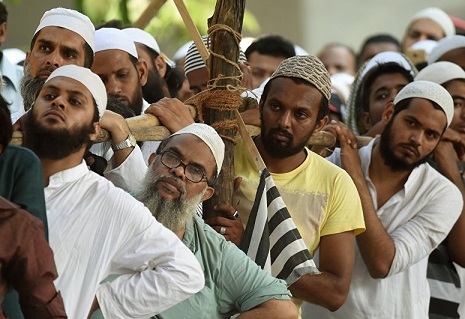Last Updated on April 18, 2025 12:06 am by INDIAN AWAAZ

Syed Ali Mujtaba
Bengaluru: The 2015 social and educational survey, or caste census, has thrown some fascinating pictures of the Muslim community in Karnataka. According to the 2015 caste survey, there are 99 sub-castes among Muslims in that state.
The names of the sub caste Muslims have given to the enumerators are; Attari, Baghban, Chapparband, Darji, Dhobi, Irani, Johari, Kalaigar, Moghal, Pattegar, Phool Mali, Rangrez, Sipaayi, Takankar and Teli, Pinjara and Nadaf, among others.
Among the sub-castes, the Shaiks are the largest sub-caste, with an estimated population of 5.5 lakh, followed by other caste categories, whose numbers are estimated to be 3.49 lakh.
Another insight that has come out is, 59 lakh Muslims out of a total of 76.99 lakhs have identified themselves as just ‘Muslims.’
Rizwan Arshad, Congress MLA from Shivajinagar, says, “This is a big challenge posed to the enumerators to identify their caste identity because after converting to Islam and migrating to urban milieu, they have disconnected with their Hindu caste identity.”
“The socio-economic situation of these Muslims has not improved after converting to Islam, and their actual caste remains shrouded in mystery, but they certainly belong to the Hindu OBC category,” he adds.
The Karnataka State Backward Classes Commission has classified Muslims under category-1, category-2A, and category-2B under the OBC quota. They currently get a 4 per cent reservation in the existing OBC quota. The commission of the caste survey has recommended hiking the reservation from 4 to 8% for category 2B.
The caste census data 2015 has revealed that the Muslim population is 18.08% or a headcount of 76 76,247 persons in Karnataka.
The Backward Classes Commission Chairman, Jayaprakash Hegde, has submitted the final report to the government on February 29, 2025. The data submitted in hard copy has 46 volumes, and has also been submitted the same in digital format.
